Cleaning the house, washing windows, removing cobwebs, and cleaning carpets can all feel like tedious tasks that cause back pain, making many people dread them, especially during peak times like preparing for important occasions throughout the year, such as the Lunar New Year.
The Most Terrifying Cleaning Jobs
However, if you haven’t had to do any of these cleaning jobs, consider yourself very fortunate.
1. Fuel Tank Cleaning
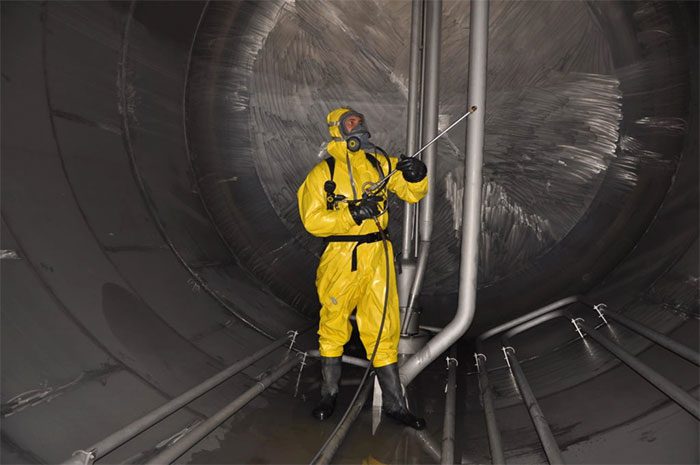
Large vehicles like airplanes and ships consume vast amounts of fuel. For instance, airplanes use a significant amount of kerosene. The fuel itself leaves stains on the tank walls and begins to accumulate as a sticky residue that must be scraped off; otherwise, it will contaminate the new fuel being added and potentially cause engine malfunctions.
Oil is one of the hardest materials to clean, as there are no easy solvents, making it stick to everything it touches. Water does little to help, so workers spend a lot of time and effort cleaning.
Even after scraping, this oil residue is difficult to repurpose into useful products. Moreover, it can become an environmental hazard that is challenging to manage.
2. Rental Property Cleanup
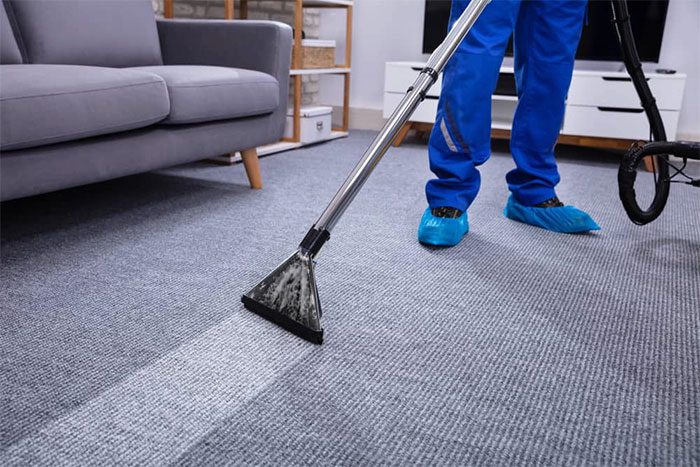
Cleaning up a rental property after someone has moved out is no simple task. Cleanup staff often encounter unexpected situations, especially if the previous tenant had a messy or unsanitary lifestyle or, worse yet, was engaged in illegal activities.
If the previous tenant was unclean, you might find piles of various types of trash scattered across the floor and bathroom, resembling a nightmare, with insects and mysterious stains everywhere…
If it was a residence associated with illegal activities or drug use, the situation could be even worse. Some substances, including cigarettes, leave odors and stubborn stains throughout the walls, ventilation systems, and floors…
3. Hotel Linen Washing
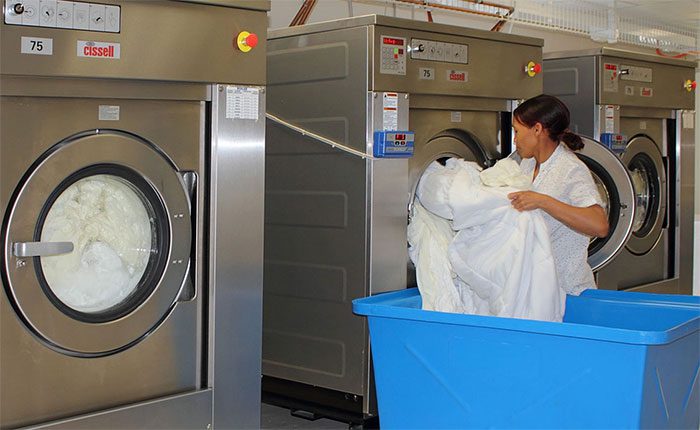
If you are a guest who appreciates the belongings and items of your lodging, that’s commendable. However, not everyone has such awareness, and sometimes towels, carpets, and bed linens are used to wipe up and absorb very unsanitary substances. To give you an idea, this can range from human waste to more disturbing and contagious materials.
Not to mention the massive amount of fabric items that laundry staff have to deal with every day. Sometimes hotels will replace items if they are in too poor condition, but most of the time, they will opt to save costs and use strong bleach to clean them.
4. Removing Dead Animals from the Streets
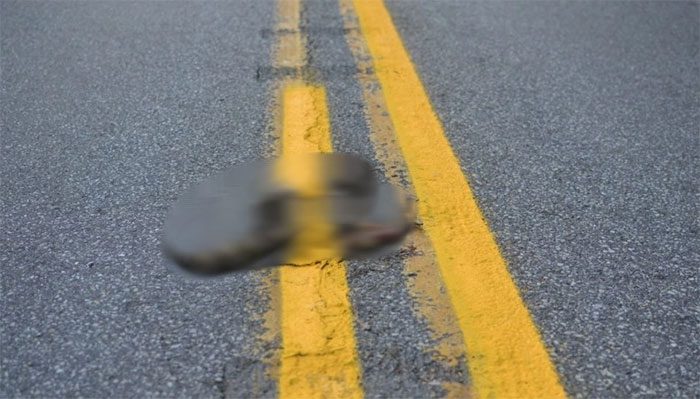
What do you think happens to dead pets, cockroaches, rats, wild animals, etc., that are accidentally run over on the road? Certainly, there are people whose job it is to clean them up to prevent a potential biological disaster in the middle of a busy area.
Now imagine having to wake up early every day, finding a flattened rat on the road, and having to scrape it up and dispose of it. To make it worse, imagine doing this in the rain or the sweltering heat of summer. That is the horror of this job.
5. Cleaning Portable Toilets
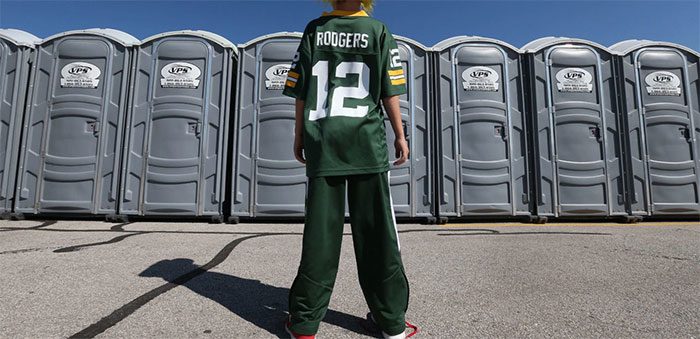
Portable toilets often appear at construction sites, concerts, and outdoor festivals. If you’ve ever had the “opportunity” to use one, you can imagine the nightmare smell of a place where hundreds of intoxicated and disoriented people go to “relieve themselves.”
If someone becomes so disoriented that they can’t distinguish between a toilet and a sink and trips, faints, or has an accident… the “complexity” of the situation increases exponentially. The person who has to clean up this nightmare must have nerves of steel, yet perhaps not as much as the person in the next job.
6. Sewer Maintenance Workers
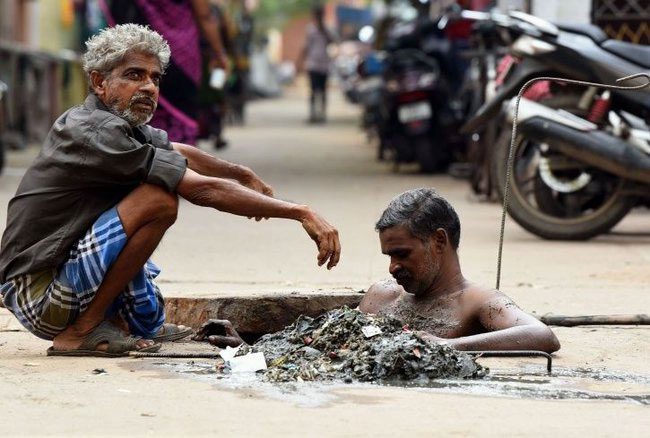
What happens when you mix waste, detergent, tap water, food residue, garbage, bathwater, hair, soap, hazardous chemicals, grease, dead animals, and all sorts of other horrifying waste from civilization? That is perhaps the closest description of a sewage system.
And although these massive underground sewer systems are designed to handle anything that flows through, they can sometimes become clogged or overwhelmed during heavy rains.
And yes, you guessed it—someone has to go down there to “restore order” to the sewage system. Sometimes, their only tools are their hands and a bucket.
Not only do they face the risk of simple unsanitary conditions, but this job also carries the risk of corrosion, disease, and more lurking dangers.
7. Disaster Cleanup
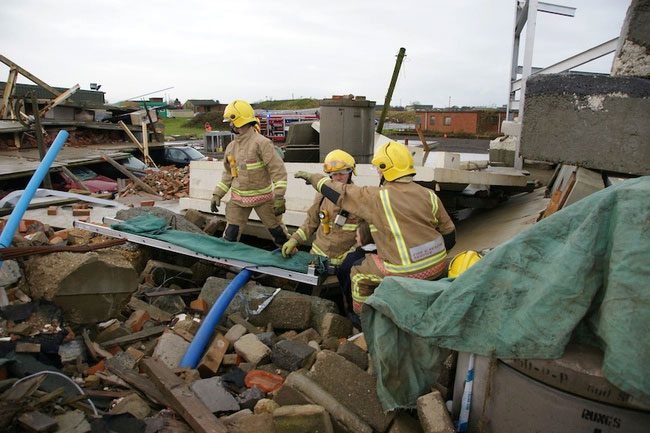
These are the individuals who face the aftermath of floods, tsunamis, terrorist bombings, events like Hurricane Katrina, and the 9/11 disaster. While many volunteers may also be involved, this work is both physically demanding and painfully indescribable.
In addition to tons of debris from homes, materials, and roads, they also confront the remains of animals and, of course, the unfortunate victims.
8. Crime Scene Cleanup
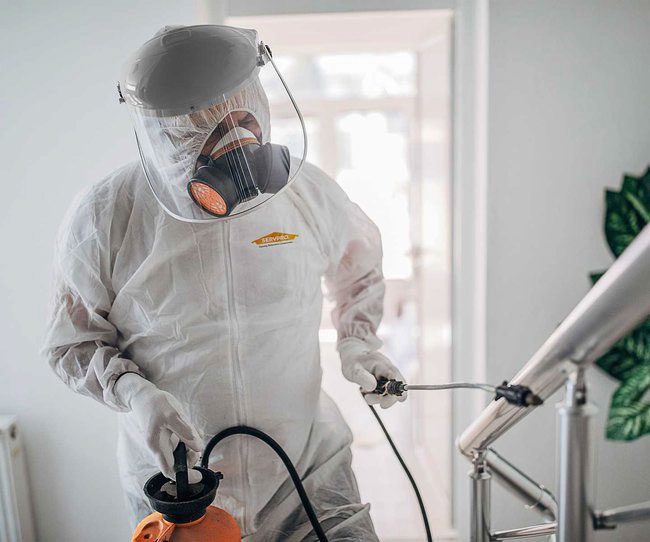
Accidents, crimes, fires… happen, and besides investigators, those who follow up to handle the aftermath once all evidence has been collected are crime scene cleanup workers.
After forensic investigators and police have completed taking fingerprints, weapons, and biological samples to the lab, the remaining task is to clean up the wreckage of scattered belongings and the gruesome scenes that are too unpleasant to describe.
At least, once accustomed to it, some of the jobs mentioned above won’t keep you up at night with post-traumatic stress disorder.


















































